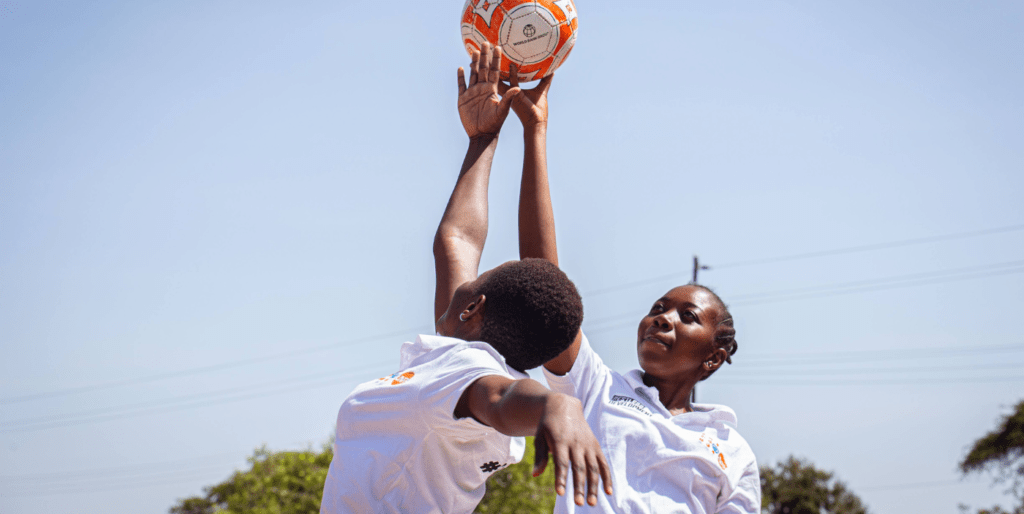Each year, around one million young people enter the job market in Tanzania, yet their access to formal employment is incredibly limited.
Young people face a range of challenges from accessing capital to skills mismatch, resulting in high unemployment rates. Women and girls face additional hurdles. In Tanzania, one in three girls are married before 18 and drop out of school, as some parents believe that marriage reduces their economic burden while others believe that they are protecting their children from the stigma associated with having a relationship outside of marriage. In reality, it is more difficult for girls to gain financial independence without an education.
Christina is a young Restless who is challenging gender stereotypes in her community and supporting other young entrepreneurs.

Growing up, Christina’s mother made and sold pieces of cotton cloth with colored bands, which people used to wrap around their bodies for fashion. Christina’s attention was caught by the beauty of these materials her mother used to make. The fabrics are used to design African dresses, one of which is called ‘Kitenge’.
Christina’s mother also used to make a traditional liquid washing soap that she sold by the roadside. She used to mix water and the ashes of plantain skins, cocoa pod powder, and palm oil. Christina was happy that her mother worked hard to provide for her and enable her to go to school.
My mother is my inspiration. Working on her businesses helped put me through school and she worked very hard. I wanted to be like her.
Christina
Christina went to Old Shinyanga School, but at a young age she had to drop out because her mother could not afford the school fees. Christina tried hard to find scholarship opportunities or part-time jobs to fund her education, but was unsuccessful.
Christina was selected to join Restless Development’s Youth Can programme which helps young girls gain the skills and knowledge they need to succeed in life. Christina took part in training sessions on life skills, business skills, sexual health and access to local government authorities and community support.
These workshops on entrepreneurship facilitate linkages to microfinance institutions and small businesses. Christina used the training she received to expand her soap business, which she started with a start-up capital of 40,000 TZS (around £15). Thanks to her new skills, she is now able to analyze the market and make soap in accordance with her customers’ needs. She now makes 17,000 TZS (around £6) as weekly profit which helps her be independent.
Economic independence is an essential tool to end violence against women and girls. When you are economically independent you are able to make your decisions and men will respect you.
Christina
Christina is now inspiring other young women and girls to change their own lives and challenge harmful practices in her community through sport. She shares her new skills and knowledge during netball practice and has encouraged many more girls to join.
For every action we take we are creating a new world, where we have power in all decisions affecting out lives and are safe to speak up without fear and harassment. That is the world we want.
Christina
